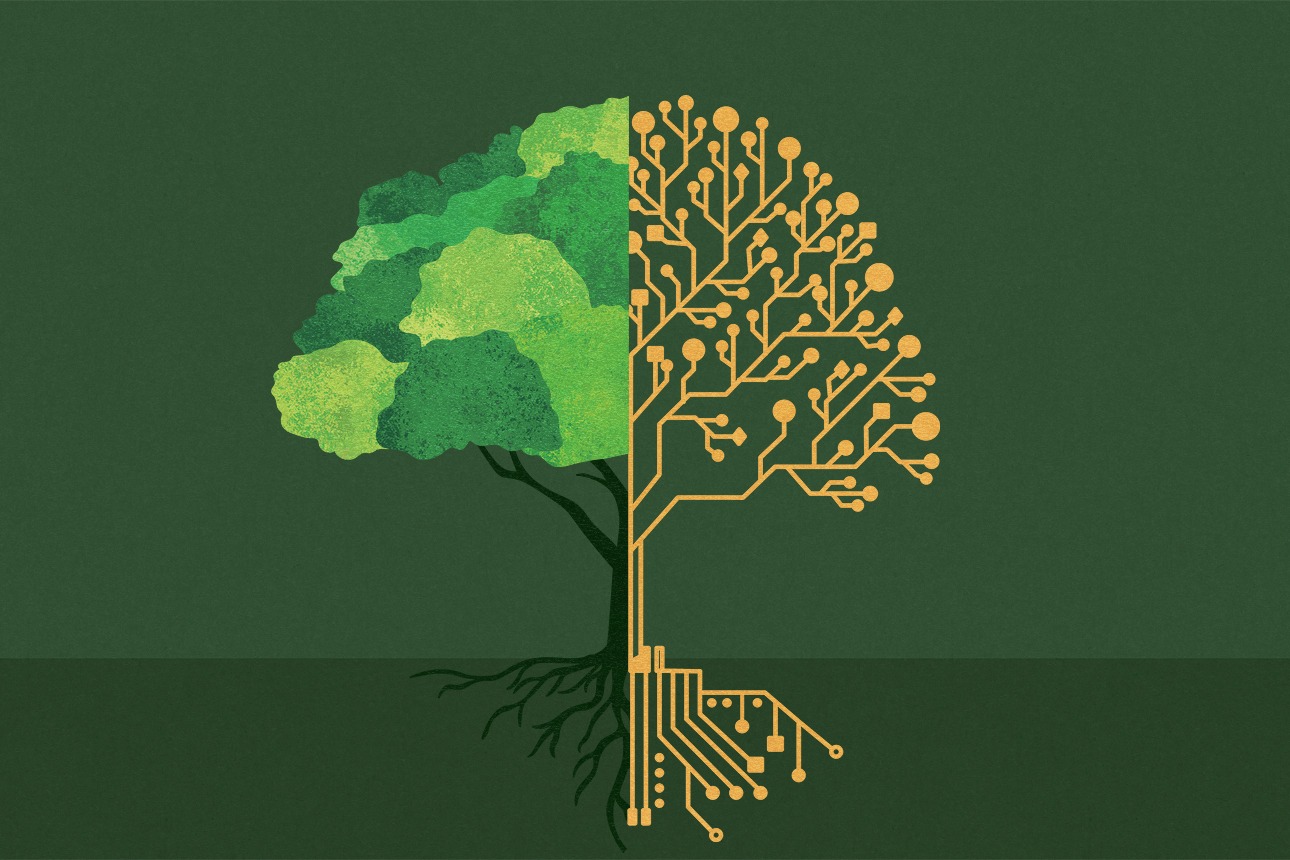
Quantum Computing: The Game-Changer for Superfast Problem Solving
Quantum computing harnesses the power of qubits, superposition, and entanglement to solve problems far beyond classical computers’ reach. It promises breakthroughs in cryptography, drug discovery, and optimization. Despite current technical challenges, it represents a revolutionary leap in computing speed and problem-solving capabilities that will transform multiple industries in the future.
✨ Raghav Jain

Introduction
In the rapidly evolving world of technology, quantum computing stands out as a revolutionary breakthrough that promises to change how we solve complex problems. Unlike classical computers that use bits as 0s and 1s, quantum computers leverage quantum bits or qubits that can exist in multiple states simultaneously. This unique property enables quantum computers to process vast amounts of information at unprecedented speeds.
This article explores how quantum computing works, why it is a game-changer in problem-solving, its potential applications, and the challenges it faces before becoming mainstream. Quantum Computing represents a revolutionary paradigm shift in computation, transcending the fundamental limitations of classical computers by harnessing the enigmatic principles of quantum mechanics to tackle problems that are utterly intractable for even the most powerful supercomputers of today and tomorrow. Far from merely being a faster version of existing machines, quantum computers leverage phenomena like superposition and entanglement to process information in fundamentally different ways, opening up unprecedented possibilities for problem-solving across a multitude of scientific, industrial, and societal domains. At its core, classical computing relies on bits, which can exist in one of two definite states: 0 or 1. Quantum computing, however, utilizes qubits, which can exist in a superposition of both 0 and 1 simultaneously. This ability to exist in multiple states concurrently allows a quantum computer with 'n' qubits to represent 2n states at once, leading to an exponential increase in processing power with each added qubit. The true "game-changer" lies in quantum entanglement, where two or more qubits become inextricably linked, such that the state of one instantly influences the state of the others, regardless of the distance separating them. This interconnectedness allows quantum computers to perform complex calculations on vast numbers of variables simultaneously, unlocking the potential for parallel processing on an unimaginable scale that is simply impossible for classical systems constrained by sequential computation. This inherent parallelism is what positions quantum computing as the ultimate engine for "superfast problem solving," promising to unlock solutions to challenges that have long remained beyond human or algorithmic reach.
The transformative potential of quantum computing is most evident in its ability to address problems that exhibit exponential complexity, where the number of possible solutions grows astronomically with each additional variable, rendering them unsolvable by classical means within any practical timeframe. One of the earliest and most famous examples is Shor's Algorithm, which theoretically allows a quantum computer to factor very large numbers exponentially faster than classical algorithms. This has profound implications for modern cryptography, as the security of widely used encryption standards (like RSA) relies on the computational difficulty of factoring large prime numbers. While posing a potential threat to current security protocols, it simultaneously spurs the development of post-quantum cryptography, new encryption methods resilient to quantum attacks. Beyond cryptography, quantum computing promises to revolutionize drug discovery and materials science. Simulating molecular interactions and material properties at the quantum level is computationally prohibitive for classical computers due to the sheer number of possible quantum states. Quantum computers, by directly simulating these quantum phenomena, could accelerate the discovery of new drugs, design novel materials with unprecedented properties (e.g., room-temperature superconductors, highly efficient catalysts), and optimize chemical reactions for industrial processes. This could lead to breakthroughs in medicine (personalized drugs, disease cures) and energy (more efficient batteries, solar cells).
In the realm of optimization problems, quantum computing offers a significant leap forward. Many real-world challenges, from logistics and supply chain management to financial modeling and traffic flow, are optimization problems where the goal is to find the best possible solution among a vast number of possibilities. Quantum annealing and quantum approximate optimization algorithms (QAOA) are designed to find near-optimal solutions to such problems much faster than classical methods. This could lead to highly efficient global supply chains, optimized flight schedules, more accurate financial risk assessment models, and intelligent traffic management systems that dynamically reduce congestion, yielding massive economic and environmental benefits. For instance, optimizing a delivery route for a fleet of vehicles visiting multiple destinations (the "traveling salesman problem") becomes computationally overwhelming for classical computers as the number of stops increases, but a quantum computer could potentially find near-optimal routes in fractions of a second, saving vast amounts of fuel and time.
Machine learning and artificial intelligence are also poised for a monumental transformation through quantum computing, giving rise to the field of Quantum Machine Learning (QML). Quantum algorithms could dramatically accelerate the training of complex AI models, perform more efficient data analysis on massive datasets, and enhance pattern recognition capabilities. Quantum computers could process data in higher-dimensional spaces than classical computers, potentially uncovering hidden correlations and insights that are currently undetectable. This could lead to more accurate medical diagnoses from image analysis, more sophisticated fraud detection systems, vastly improved natural language processing models, and more adaptive autonomous systems. For instance, in complex data classification tasks, quantum algorithms like quantum support vector machines or quantum neural networks could offer significant speedups and potentially better accuracy for large-scale datasets, accelerating the development of next-generation AI.
Furthermore, quantum computing holds immense promise for complex simulations across various scientific disciplines. In physics, it could enable more accurate simulations of quantum systems, aiding in the fundamental understanding of matter and the universe. In climate modeling, quantum computers could process vast amounts of environmental data and run more precise climate simulations, leading to better predictions and strategies for mitigating climate change. Even in financial services, beyond optimization, quantum computing could revolutionize Monte Carlo simulations for risk analysis and option pricing, providing faster and more accurate results that are critical for high-frequency trading and complex financial instruments. The ability to simulate quantum systems directly, rather than approximating them classically, is a profound capability that underlies many of these potential advancements.
Despite its immense promise, quantum computing is still in its nascent stages, facing significant engineering and scalability challenges. Building stable, error-corrected qubits that can maintain their quantum properties (coherence) for long enough to perform complex computations at room temperature remains a monumental hurdle. Current quantum computers are relatively small ("Noisy Intermediate-Scale Quantum" - NISQ devices) and prone to errors, often requiring cryogenic temperatures. However, rapid advancements in quantum hardware (superconducting qubits, trapped ions, photonic qubits, topological qubits) and quantum error correction techniques are bringing the dream of fault-tolerant quantum computers closer to reality. The development of robust quantum software, algorithms, and programming languages is also an active area of research.
In conclusion, Quantum Computing is not merely an incremental improvement; it is a fundamental shift in our ability to process information, poised to be a true "game-changer" for superfast problem-solving across an unparalleled spectrum of fields. By leveraging the bizarre yet powerful laws of quantum mechanics – superposition and entanglement – quantum computers can tackle exponentially complex challenges that are beyond the reach of any classical machine, from breaking modern encryption and accelerating drug discovery to optimizing global logistics and revolutionizing artificial intelligence. While the technology is still in its early phases, grappling with significant engineering hurdles, the relentless pace of innovation in quantum hardware and software development suggests that the era of quantum advantage, where quantum computers definitively outperform classical ones for commercially relevant problems, is on the horizon. This transformative power promises to unlock solutions to humanity's most pressing scientific, economic, and societal problems, redefining the very boundaries of what is computationally possible and ushering in an unprecedented era of technological advancement.
Understanding Quantum Computing
At its core, quantum computing is based on principles of quantum mechanics, which describe how particles behave at atomic and subatomic levels. The two key quantum properties that make quantum computing powerful are:
- Superposition: Unlike classical bits, qubits can be in a state of 0, 1, or both simultaneously. This allows quantum computers to perform many calculations at once.
- Entanglement: Qubits can become entangled, meaning the state of one qubit instantly influences another, even over large distances. This creates highly correlated systems that accelerate computation.
Because of these principles, quantum computers can explore multiple solutions at the same time, drastically reducing the time needed for complex calculations.
Why Quantum Computing is a Game-Changer for Problem Solving
1. Exponentially Faster Computation
Quantum computers can process combinations of variables simultaneously, unlike classical computers that solve step-by-step. This allows certain problems to be solved exponentially faster.
2. Efficient Optimization
Problems involving optimization, like route planning or supply chain logistics, benefit greatly because quantum algorithms can evaluate numerous possibilities concurrently.
3. Breaking Traditional Encryption
Quantum computers have the potential to crack widely used encryption methods by factoring large numbers quickly, which classical computers struggle with.
4. Revolutionizing Drug Discovery
By simulating molecular interactions at quantum levels, quantum computers can accelerate the discovery of new medicines, reducing costs and time.
5. Advanced Machine Learning
Quantum algorithms could vastly improve data analysis and pattern recognition, pushing artificial intelligence into new frontiers.
Key Quantum Algorithms That Enable Superfast Problem Solving
1. Shor’s Algorithm
Used for factoring large numbers, it threatens current encryption by solving problems much faster than classical methods.
2. Grover’s Algorithm
Speeds up unstructured database searches, offering quadratic improvements over classical searches.
3. Quantum Approximate Optimization Algorithm (QAOA)
Targets combinatorial optimization problems found in logistics and finance.
Applications of Quantum Computing
1. Cryptography and Cybersecurity
Quantum computing will redefine data security by breaking current encryption and enabling new quantum-safe cryptographic protocols.
2. Material Science
Simulating materials at atomic levels to create superconductors, better batteries, and advanced polymers.
3. Financial Modeling
Optimizing portfolios, managing risk, and pricing complex derivatives efficiently.
4. Climate Modeling
Handling massive data for predicting climate changes and weather patterns with higher accuracy.
5. Artificial Intelligence
Enhancing machine learning algorithms to process vast datasets faster and more accurately.
Challenges Facing Quantum Computing
1. Qubit Stability
Qubits are highly sensitive to environment and noise, causing errors that need complex correction methods.
2. Scalability
Building quantum computers with enough qubits to solve real-world problems remains a technical hurdle.
3. High Costs
Quantum hardware requires expensive infrastructure like extreme cooling systems.
4. Algorithm Development
Quantum software and algorithms are still in early stages, needing more research for practical applications.
How to Prepare for the Quantum Era
1. Learning Quantum Basics
Understanding quantum mechanics and computing principles will become essential for tech professionals.
2. Developing Quantum Algorithms
Specialized knowledge in quantum programming languages like Qiskit or Cirq is in demand.
3. Following Industry Progress
Companies like IBM, Google, and startups are racing to build usable quantum computers—stay updated.
4. Investing in Cybersecurity
Preparing for the shift with quantum-resistant encryption methods is crucial.
Quantum Computing vs Classical Computing: A Quick Comparison
FeatureClassical ComputingQuantum ComputingData UnitBit (0 or 1)Qubit (0, 1, or superposition)Processing PowerSequential or parallelMassive parallelism via superpositionSpeed for Complex ProblemsSlower for large dataExponentially fasterError RateLowHigh, requires error correctionCurrent ApplicationEveryday computing, internetEmerging, experimental
Myths About Quantum Computing: Debunked
“Quantum computers will replace classical computers.”
→ Not soon. They will complement classical systems for specific tasks.
“Quantum computing can solve all problems instantly.”
→ It excels at certain problem types, not all.
“Anyone can build a quantum computer at home.”
→ Quantum hardware is extremely complex and expensive.
“Quantum computing is just theoretical.”
→ Real prototypes exist and are rapidly advancing.
Conclusion
Quantum computing is set to revolutionize problem-solving by harnessing the bizarre but powerful laws of quantum mechanics. With its ability to process vast possibilities simultaneously, it promises breakthroughs in cryptography, medicine, AI, and many more fields.
While challenges remain, ongoing research and investments are accelerating progress. Understanding and preparing for the quantum era will open new doors for innovation and transform industries worldwide.
The future of superfast problem solving is quantum — and it’s closer than you think.
Q&A Section
Q1: What is Quantum Computing?
Ans: Quantum Computing is a type of computation that uses quantum bits (qubits) leveraging principles of quantum mechanics like superposition and entanglement to perform complex calculations much faster than classical computers.
Q2: How do qubits differ from classical bits?
Ans: Unlike classical bits which are either 0 or 1, qubits can exist in multiple states simultaneously, allowing parallel processing of information.
Q3: What is superposition in quantum computing?
Ans: Superposition allows qubits to be in multiple states at once, enabling quantum computers to analyze many possibilities simultaneously.
Q4: What role does entanglement play in quantum computing?
Ans: Entanglement links qubits so the state of one instantly influences another, regardless of distance, enhancing computational power and speed.
Q5: Which problems are quantum computers especially good at solving?
Ans: Quantum computers excel in complex tasks like cryptography, optimization problems, drug discovery, and simulating molecular interactions.
Q6: How does quantum computing impact cybersecurity?
Ans: It can break traditional encryption methods but also enables development of quantum-resistant cryptography for stronger security.
Q7: What industries will benefit most from quantum computing?
Ans: Pharmaceuticals, finance, logistics, artificial intelligence, and materials science stand to gain significantly from quantum advances.
Q8: What are the main challenges in developing quantum computers?
Ans: Challenges include qubit stability (decoherence), error rates, and the need for extremely low temperatures.
Q9: How far are we from practical quantum computers?
Ans: While prototypes exist, widespread practical use may take years due to technological and scalability hurdles.
Q10: Can quantum computers replace classical computers?
Ans: No, quantum computers will complement classical systems by solving specific complex problems that classical computers cannot efficiently handle.
Similar Articles
Find more relatable content in similar Articles

The Rise of Digital Twins: You..
Digital twins are transforming.. Read More

3D-Printed Organs: Are We Clos..
3D-printed organs are at the f.. Read More

Virtual Reality Therapy: Heali..
Virtual Reality Therapy (VRT) .. Read More

The Hidden Energy Cost of Stre..
As digital streaming and onlin.. Read More
Explore Other Categories
Explore many different categories of articles ranging from Gadgets to Security
Smart Devices, Gear & Innovations
Discover in-depth reviews, hands-on experiences, and expert insights on the newest gadgets—from smartphones to smartwatches, headphones, wearables, and everything in between. Stay ahead with the latest in tech gear
Apps That Power Your World
Explore essential mobile and desktop applications across all platforms. From productivity boosters to creative tools, we cover updates, recommendations, and how-tos to make your digital life easier and more efficient.
Tomorrow's Technology, Today's Insights
Dive into the world of emerging technologies, AI breakthroughs, space tech, robotics, and innovations shaping the future. Stay informed on what's next in the evolution of science and technology.
Protecting You in a Digital Age
Learn how to secure your data, protect your privacy, and understand the latest in online threats. We break down complex cybersecurity topics into practical advice for everyday users and professionals alike.
© 2025 Copyrights by rTechnology. All Rights Reserved.